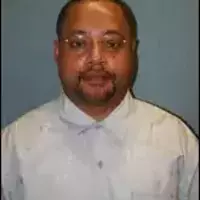Grand Challenges in Earth Learning: Perspectives from Historically Black Colleges and Universities
Leaders
 Richard D. Schulterbrandt Gragg III, Florida Agricultural and Mechanical University
Richard D. Schulterbrandt Gragg III, Florida Agricultural and Mechanical University
 De'Etra Young, Tennessee State University
De'Etra Young, Tennessee State University
 Mintesinot Jiru, Coppin State University
Mintesinot Jiru, Coppin State University
 Ambrose Jearld Jr, National Technical Association
Ambrose Jearld Jr, National Technical Association
This panel, moderated by Richard Schulterbrandt Gragg III (Florida Agricultural and Mechanical University), will draw on examples of studies, programs, and policies from Historically Black Colleges and Universities to discuss key strategies and approaches for engaging students, and strengthening diversity in Earth learning. The nation's Historically Black Colleges and Universities comprise only 3 percent of all postsecondary institutions, yet bring centuries of experience successfully serving African American students and their communities. Recently called out as a central part of the nation's STEM infrastructure by the National Academy of Sciences, HBCUs graduate a large percentage of African American students, particularly in the STEM fields, and many who go on to earn STEM doctoral degrees. This session allows participants to learn from this experience and consider its implications for Earth learning in all venues.
We will explore successful practices from across STEM disciplines to organize new integrated approaches to increase diversity and inclusion, and broaden access and participation in Earth Learning.
Building on HBCU perspectives, panelists will make the case for:
- diversity in Geosciences, inspiring a more diverse geoscience workforce
- culturally relevant teaching and learning -- exposing students to Earth Learning and environmental issues through real-world applications in school and in the community
- effectively advocating change in preK-12 schools, informal education, community colleges and universities—including HBCUs and minority serving institutions (MSIs)
Panelists:
- De'Etra Young, Assistant Professor, Department of Agricultural and Environmental Sciences, Tennessee State University
- Mintesinot Jiru, Associate Professor and Chairperson, Department of Natural Sciences, Coppin State University
- Ambrose Jearld, National Technical Association
Key Previous Studies & References
- Archer R.S., Davis F., Ebanks S.C., Gragg R.D.S. 2019. HBCUs Broadening Participation in Geosciences (A Journey Through InTeGrate). In: Gosselin D., Egger A., Taber J. (eds) Interdisciplinary Teaching About Earth and the Environment for a Sustainable Future. AESS Interdisciplinary Environmental Studies and Sciences Series. Springer, Cham
- Committee on STEM Education of the National Science & Technology Council 2018. Charting a Course for Success: America's Strategy for Stem Education. Washington, DC: White House Office of Science and Technology Policy
- National Academies of Sciences, Engineering, and Medicine 2019. Minority Serving Institutions: America's Underutilized Resource for Strengthening the STEM Workforce. Washington, DC: The National Academies Press. https://doi.org/10.17226/25257
- National Research Council 2001. Grand Challenges in Environmental Sciences. Washington, DC: The National Academies Press. https://doi.org/10.17226/9975.
